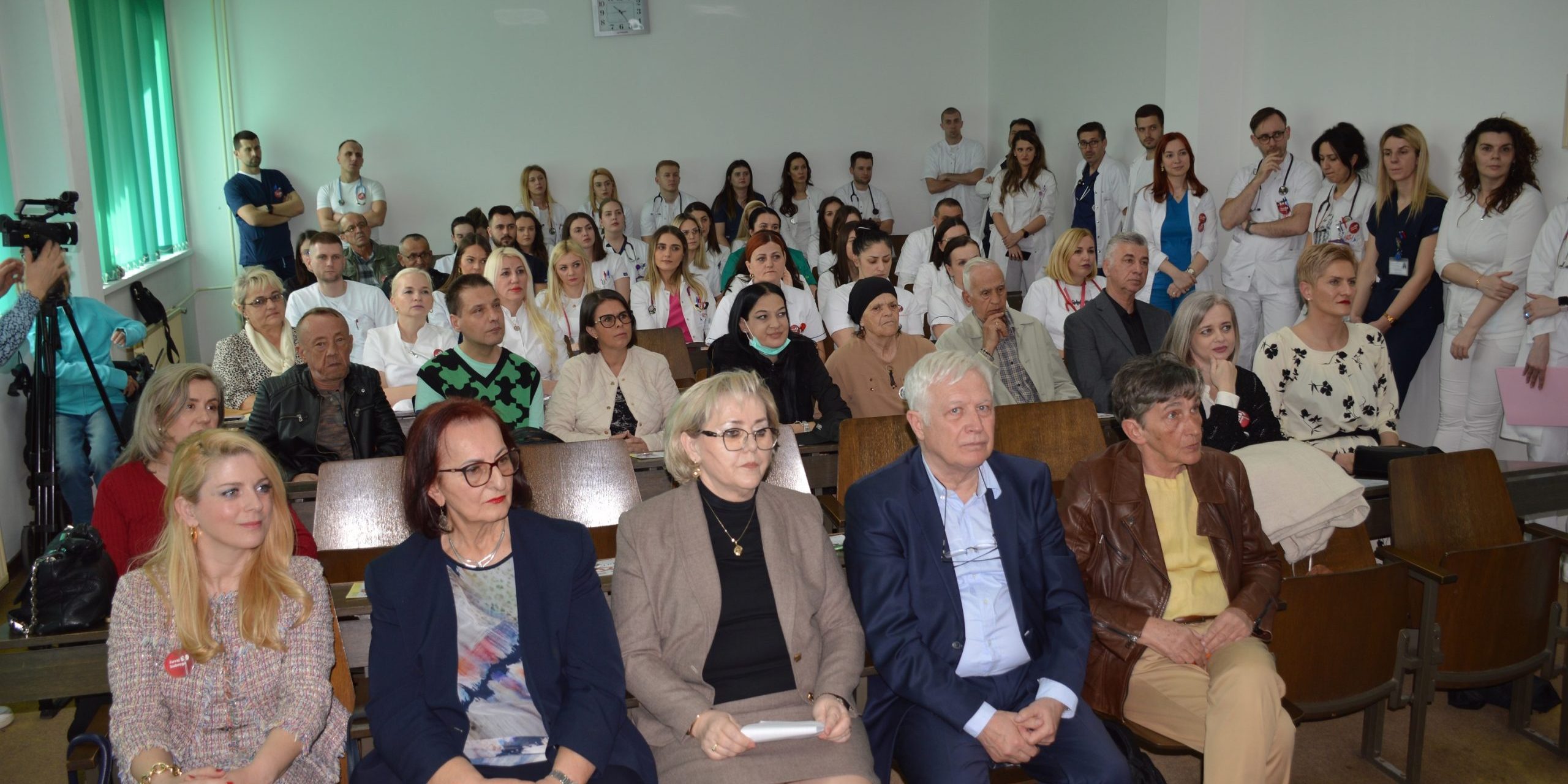In recognition of World Kidney Day, the University Clinical Center Tuzla, in collaboration with the Association of Dialysis and Transplant Patients of the Federation of Bosnia and Herzegovina and the Donor Network in BiH, organized a forum titled “Are Your Kidneys OK? Detect Early, Protect Your Kidney Health.”
The event aimed to raise awareness about the importance of early disease detection, educate the public on risk factors and managing life with kidney disease, and highlight the significance of organ donation and transplantation.
This year’s global campaign emphasizes early diagnosis, driven by the increasing prevalence of chronic kidney disease worldwide.
Chronic kidney disease (CKD) is a progressive, irreversible loss of kidney function that develops over months or years, often without noticeable symptoms in its early stages. The number of people affected by CKD is steadily rising, with an estimated 650 million cases worldwide.
According to available data, mortality related to kidney disease is increasing annually, and projections suggest that by 2040, CKD will become the fifth leading cause of death globally. In the Federation of Bosnia and Herzegovina, the incidence rate stands at 11 per 10,000 inhabitants.
These statistics underscore the urgent need to raise public awareness about the importance of organ donation and transplantation. Strengthening these efforts is essential for Bosnia and Herzegovina to move toward joining Eurotransplant, improving access to life-saving treatments for patients in need.
According to Prof. Dr. Mirna Alečković- Halilović, head of the Department of Nephrology, Dialysis, and Transplantation at the University Clinical Center Tuzla, not all patients have the option of a living donor, making it essential to increase the number of transplants from deceased donors.
“Last year, our efforts led to more transplants from deceased donors than from living donors. Bosnia and Herzegovina is not yet a member of Eurotransplant, and the path to joining is challenging. That’s why we must all work together to promote organ donation and increase the number of potential donors—one of the key prerequisites for becoming part of the Eurotransplant network,” emphasized Prof. Dr. Alečković- Halilović.
In 2023, a total of 36 kidney transplants were performed in Bosnia and Herzegovina. “This year, we started with two unrelated transplants, and today we have three. I hope 2024 will bring even better results. Most importantly, I hope to see an increase in cadaveric transplants, as they are the only chance for some patients to receive a new lease on life,” said Tomislav Žuljević, president of the Association of Dialysis and Transplant Patients of the Federation of Bosnia and Herzegovina.
The Donor Network of Bosnia and Herzegovina underscores the vital role of organ donation in enabling successful transplants.
“Without active promotion of donation, we will not have potential donors, cadaveric organs, or transplants. Over the past two years, we have seen significant progress, especially compared to previous years when donor numbers were critically low. Notably, the Clinical Centers in Sarajevo and Tuzla have recorded a substantial increase in transplants,” emphasized Prof. Halima Resić, President of the Donor Network of Bosnia and Herzegovina.
The forum concluded that multi-level cooperation is essential, focusing on universal healthcare, early disease detection, and raising awareness of kidney disease among both healthcare professionals and the general public.
In addition to a large number of nephrology patients, the event was attended by Dr. Lejla Vikalo, coordinator of the transplant program at UKC Tuzla, Dunšanka Bećirović, Minister of Health of Tuzla Canton, as well as physicians from various departments of UKC Tuzla and media representatives.







